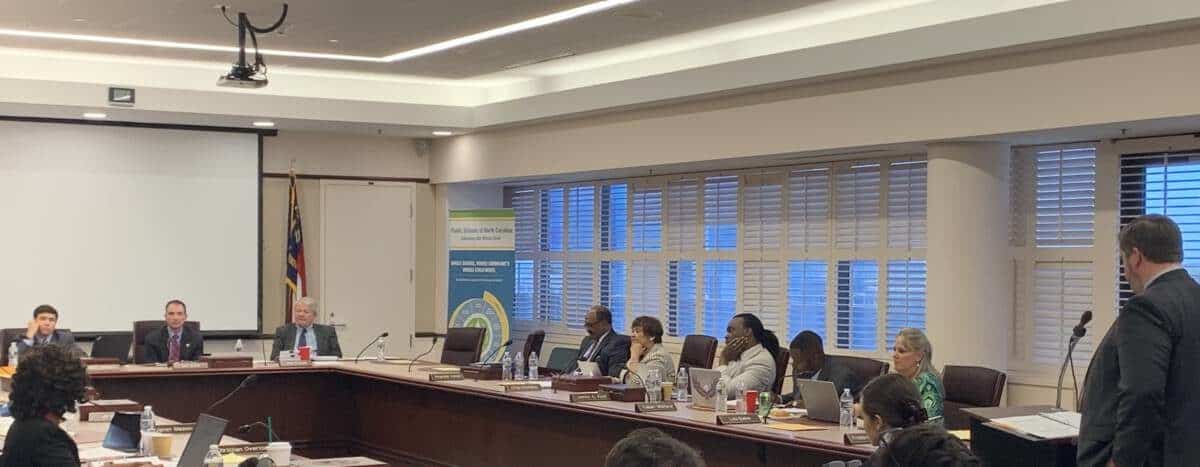

The State Board of Education (SBE) met for a special telephonic meeting on Monday, in part to approve a request that allows one of the state’s two virtual charter schools to move on from its former Education Management Organization, Pearson OBL, and manage its day-to-day operations through its own board. The approval amends the virtual school’s charter both to move on from Pearson and also to rename itself — from N.C. Connections Academy to N.C. Cyber Academy.
The amendment comes 10 days after the SBE had pressed the Charter School Advisory Board (CSAB) for a recommendation on the matter. The Advisory Board had initially declined to give one, but last week —after the State Board urged it to come to a conclusion — the CSAB finally decided to support the virtual school’s request.
N.C. Cyber Academy hosted 2,560 students this year and 1,871 of them have indicated their intent to return for next year.
“The board members are pleased to have this matter behind them and are anxious to get ready for the 2019-2020 school year,” Board Chair Bridget Phifer said in a release. “The board has been working hard to make this a reality. And, now that the State Board of Education has given us permission to proceed, I want to thank parents and students, teachers and staff for their support during this process.”
The approval came with three stipulations:
- A board representative attend the monthly CSAB meetings until which time the CSAB determines that is no longer necessary.
- The board provide any information as requested by the Office of Charter Schools.
- The CSAB provide quarterly written reports to the SBE on the performance of the school until no longer needed.
While the SBE’s decision paves the way for N.C. Cyber Academy to move on from a tumultuous relationship with its management company, it doesn’t completely remove the virtual charter from controversy. Last week the state Senate passed Senate Bill 522, which removes the enrollment cap of 2,592 students at each virtual charter and allows them to grow by 20 percent a year.
While supporters argued that families interested in virtual charters for their student learners should not be subject to a cap, critics pointed to the D performance grades each of the state’s two virtual charters has received the past three years.
“I believe a better name for this bill would be the rewarding failure act, and that’s because this bill rewards low-performing virtual charter schools,” said Sen. Jay Chaudhuri, D-Wake.
SB 522 is now under consideration in the House, while the newly named N.C. Cyber Academy proceeds with its plans for new management. Switching from Pearson OBL to a handful of self-selected vendors, the charter school’s board said, will result in savings of more than $3 million a year.
The board said these savings would be reinvested according to four priorities:
- Reducing average class size by 50%.
- Providing laptops to all students (presently, fewer than 30% of students receive refurbished desktop computers from Pearson).
- Hiring local academic placement coordinators, social workers, and counselors to improve student social emotional learning and development.
- Increasing the average teacher salary to ensure that N.C. Cyber Academy’s teachers are paid a salary equal to the statewide average.


